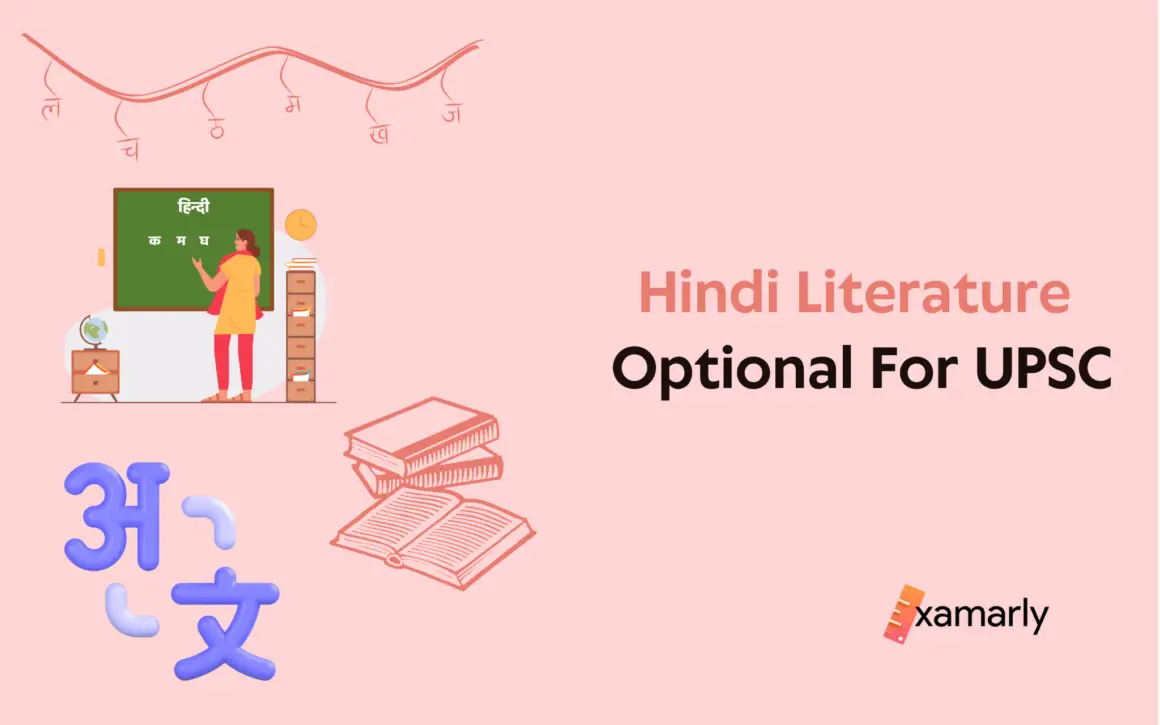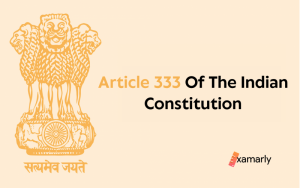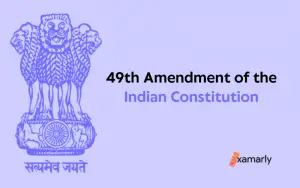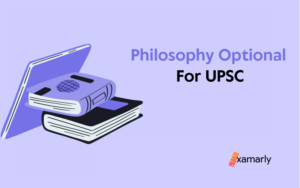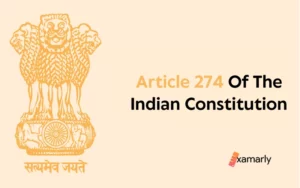The three stages of the UPSC Civil Services Exam are Prelims, Mains, and Interviews. For the UPSC mains exam, candidates must choose one elective topic. How candidates perform in the IAS Exam is significantly impacted by it. According to current trends, literature courses are becoming more successful.
In India, Hindi is one of the most widely spoken and popular languages and is understood by the vast majority of people. For the civil services mains test, the UPSC offers about 20 different literature of languages as optional subjects. Hindi, one of India’s 22 official languages, is one of them. Among UPSC candidates, Hindi is the most preferred language option. It has also had a successful record, with numerous exam toppers from the last couple of years scoring well in the optional Hindi literature course. This article covers the Hindi Literature optional for UPSC, including how to study, the syllabus, information about prior toppers, and past performance.
- Comparison/Similarity With Other Optional Papers
- Advantages
- Mastering The Subject From Basics
- Importance Of Academic Background
- What Time Duration Is Required For Preparation?
- Overlapping Syllabus with GS
- Help with Essay Paper
- Disadvantages
- Recent Toppers Of UPSC CSE – Optional Hindi Literature Subject
- Data/Scores Available
- Syllabus of Hindi Literature Optional for UPSC IAS Mains Exam
- Standard References
- Conclusion
- FAQs
Comparison/Similarity With Other Optional Papers
The most popular electives include sociology, geography, and public administration. For some reason, elective literature courses in literature are less common.
- Instead of learning theory, this subject emphasizes the development of analytical skills.
- As compared to other optional subjects, this subject is constant for 2-3 years, so the candidates don’t need to update themselves regularly.
- If a candidate is good in Hindi and has a background in Hindi literature, he/she can make guesses and write accordingly which plays well but guesses do not apply to other optional subjects as they are subjective.
Advantages
- Hindi should be considered as an optional subject if you are a graduate or postgraduate in Hindi, have a strong interest in the language, or feel confident writing in it. This is because if you are good at it, it counts as scoring. People often question how a language can score, yet in Hindi or English literature, this is exactly the point. Because the syllabus is rigid and constrained, you can prepare completely if you can write effectively and love the subject.
- Your ability to write answers here is not constrained in any way. There are more opportunities to earn decent grades with little work, and the stronger your command of the language is. The idea here is that the effort necessary for this exam will seem easy for applicants who enjoy reading and writing and who enjoy writing for their pleasure. Reading about the subject would also be fascinating and enjoyable.
- Compared to some of the more popular subjects like geography or Public Administration, Hindi optional will confront you with less competition.
- The course can be completed in three to four months If Hindi is your language of choice for the mains written exam.
Mastering The Subject From Basics
- Firstly, it is important to cover the entire syllabus, read the texts in their original and native languages and practice lots of questions to develop the right kind of language that fits in your answer.
- Be sure to use straightforward, understandable terminology. No need to use poetic terminology and flowery language. Ensure simplicity and ensure that it shouldn’t be informal and make sure to avoid grammatical errors in your answer.
- Regarding the section on languages (Braj, Awadhi, Apbhransh, etc.), you don’t have to memorize everything. This is a very important part of the curriculum. Here, you can earn the highest grade with the least amount of effort. There are simply 6–7 points under each that you must learn. There isn’t enough time in the exam to write lengthy history. It is important to properly understand the topics of Rajbhasha, Rashtrabhasha, and Sampark Bhasha. However, since many questions from this part are asked every year, study this section thoroughly.
- The portion on Hindi literature’s history and timeline of Hindi literature is crucial and has to be covered in detail. This will also help you with papers I and II.
- While studying various writers and poets make a short note of each of them as in what Saint Kabir talked about Bhakti, what are the writings of Vidyapati etc.
- While writing your answers add quotations and suitable examples of various writers and poets which are relevant to the context and keep the language simple.
Importance Of Academic Background
Regardless of having graduated in any subject, a person can select any subject as an optional one as the syllabus of Hindi literature is short. Hindi literature is the most popular optional subject among UPSC aspirants and has a success rate. You can score maximum marks with less effort in Hindi Literature.
There is no necessity for someone to have a degree in Hindi literature to choose it as an optional subject for the UPSC exam. In general, it is advised that you only enroll in literature optional if you have previously studied the topic thoroughly during your graduation this is because there is a lot of reading involved in the preparation, and with good command and depth knowledge about the subject you can score decent marks.
What Time Duration Is Required For Preparation?
3-4 months are sufficient to complete the syllabus of Hindi Literature. In comparison to some of the more popular subjects like geography or pub ad, you will have less competition in Hindi optional as Hindi is the most spoken and widely used language, the syllabus is rigid and constrained, so if you can write effectively and enjoy the subject, you may prepare in three to four months.
Overlapping Syllabus with GS
Choosing an optional subject for the UPSC Mains test sounds like a difficult task. As it is a matter of 500 points that will determine the final score, therefore it is a crucial decision. Before choosing an optional subject for oneself, there are numerous factors to think about and the fact that some subjects are similar to those of general studies is one of the considerations.
Many subjects overlap with general studies like history, geography, and political science but in Hindi literature, there is hardly any overlap with the general studies papers.
Help with Essay Paper
Along with the optional subject, the Essay paper of the mains examination determines where you will land on the final merit list. You have to write two essays for the CSE Mains, each between 1000 and 1200 words in length, for a total of 250 points.
If you have chosen Hindi Literature as your optional subject and have chosen Hindi as your writing medium with good proficiency in the language it will help you in the essay paper.
Disadvantages
- Choose this subject if you feel confident writing and reading about it. Writing in particular must be done quickly enough to finish the paper; otherwise, you have little chance of earning good grades.
- For this paper, you need to have very strong comprehension abilities. Your score decreases if your answer is beyond the box.
- Other optional subjects may have some topics and components in general studies papers as well but you have to prepare individually for this subject.
- Because of the rigidity and complexity of the subject, candidates with an academic background in Hindi are advised to choose Hindi Literature subject as an optional subject for the Civil Services Mains Exam.
Recent Toppers Of UPSC CSE – Optional Hindi Literature Subject
Here are some of the toppers of the UPSC IAS exam who have taken Hindi Literature as their optional subject-
| Name | Year | Rank |
| Pradeep Kumar Dwivedi | 2018 | 74 |
| Ratan Deep Gupta | 2017 | 767 |
| Asheesh Kumar | 2017 | 817 |
| Ganga Singh Rajpurohit | 2016 | 33 |
| Nishant Jain | 2014 | 13 |
Data/Scores Available
The average number of candidates who choose Hindi literature as an elective is 400. The following table shows the number of candidates who appeared in the UPSC mains with Hindi as their Optional literature Subject-
| Year | Number Of Candidates Appeared | Number Of Candidates Cleared |
| 2017 | 267 | 19 |
| 2016 | 974 | 56 |
| 2015 | 428 | 12 |
| 2014 | 407 | 22 |
Syllabus of Hindi Literature Optional for UPSC IAS Mains Exam
UPSC Exam offers Hindi Literature as an optional subject to the aspirants at the time of mains examination. The optional paper consists of two papers I & II each carrying a mark of 250 with a total of 500 marks. Before choosing a subject as your optional you should go through the syllabus.
Click on the link provided below for the detailed syllabus of Hindi Literature Optional for the UPSC IAS Mains Examination.
Hindi Optional Syllabus For UPSC
Standard References
For your ease of exam preparation, we have divided the Hindi Literature Books for UPSC according to the UPSC Hindi Literature Syllabus
- NCERT Class XI – Sahitya Shastra Parichay
- Hindi Sahitya Ka Saral Itihas – Dr. Vishwanath Tripathi
- Hindi Sahitya Ka Itihas – Dr. Nagendra
- Hindi Bhasha – Dr. Hardev Bahri
- Sahitya Ka Vastunishth Etihas – Saraswati Pandey
- History of Hindi literature, Katha Sahitya, Drama & Theater, Criticism, and other forms of Hindi prose—Lalit Nibandh, Rekhachitra, Sansmaran, Yatra-Vrittant.
- Chhayavad – Dr. Namvar Singh
- Kabir – Hazari Prasad Dwivedi
- Kavita Ke Naye Pratiman – Dr. Namvar Singh
- Hindi Sahitya Aur Samvedna Ka Vikas – Dr. Ramswaroop Chaturvedi.
Conclusion
Among UPSC aspirants Hindi is the most preferred language option with a high success rate as Hindi is the most popular and widely spoken language in India. A candidate may choose Hindi Literature as optional without any academic background if he/she has a good hold and proficiency in the language.
FAQs
Can I study Hindi literature as an elective subject if I write my UPSC main exams in English?
Although you must write your Hindi literature optional paper answers in Hindi because it is a language topic, you can write your GS paper responses in English even if you have chosen Hindi literature as your optional paper.
Is Hindi literature a good elective?
Hindi should be considered optional if you are a graduate or postgraduate in Hindi, have a strong interest in the language, and feel confident writing in it. This is because if you are good at it, it counts as scoring.
Which option is most advantageous for scoring?
According to the general trend, Mathematics, Anthropology, Sociology, Literature, Public Administration, and Geography are the topics that could, with your great dedication, help you obtain around 330 marks in optional exams.


